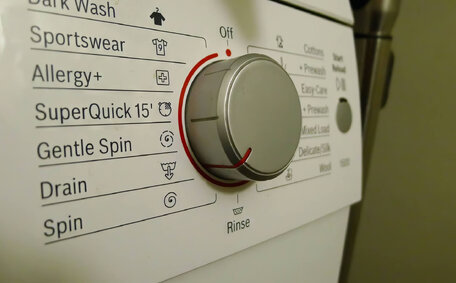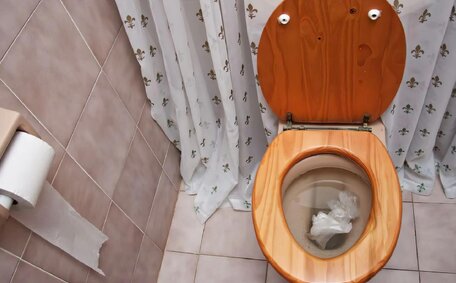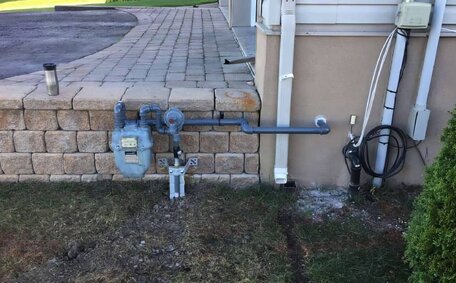Losing hot water in your home can be a significant disruption. It’s an essential convenience that’s sharply missed when it’s unavailable.
The purpose of this article is to provide helpful troubleshooting tips to get your hot water flowing again. We’ll outline common issues that can cause hot water problems in gas and electric systems, as well as maintenance advice and when it’s time to call in a professional plumber.
While basic diagnostics can resolve numerous hot water issues, we’ll also identify indicators for when expert intervention is required for more intricate repairs.
Checking the Basics First
Begin troubleshooting your hot water system by examining a few common areas of concern:
- Make sure the main water supply shutoff valve for your property is fully open. Restricted water flow can prevent enough hot water delivery to your fixtures.
- Check to see if the power supply or gas line to your water heater is active. Water heaters need power to operate.
- Test hot water taps in various locations throughout your house, not just one particular spot. The problem may be isolated to a single faucet.
- For gas supply systems, check to see if the pilot light is lit. Consult your manual for proper lighting procedure.
- For electric hot water heaters, check that the circuit breaker is in the on position. Reset it fully off and on if needed.
- Inspect your hot water heater tank and pipes for any leaks or damage that requires immediate attention.
These initial steps can often identify simple issues behind the lack of hot water. Once the basics are checked, you can move on to troubleshooting components like heating elements, thermostats, and parts specific to your system.
Is the Water Supply On?
One of the most basic checks is to make sure your main water supply valve is turned on. Usually, this valve is near your home’s water meter or on the primary pipeline.
Turn the valve counterclockwise to open and clockwise to close. Ensure it’s fully open to allow maximum water flow, making sure your water pressure is optimal.
If your valve is already open, try turning it fully closed and then reopened again. Debris in the valve can sometimes restrict flow even when open.
Ensure that all taps, including those for cold water, are functioning in your house before deciding if restricted supply is the issue. Lack of hot water at your taps doesn’t necessarily mean the main line is turned off.
However, if any faucet lacks hot water flow, it’s likely your main shutoff valve requires attention before restoration.
A simple oversight like a closed supply valve is one of the most common causes for hot water failure. Taking a minute to check this first can save you a lot of time before moving to other troubleshooting steps.
Is There Power to the Water Heater?
- Ensure the circuit breaker or fuse at the main electrical panel that controls the water heater is flipped to the on position. Reset it fully by switching off and back on.
- Check the wiring connections to the water heater for any loose cables or damage.
- Inspect the exterior of the unit for signs of electrical shorts like scorch marks or burning smells.
- Press the buttons on the thermostat control panel. If they don’t light up, there may be a power issue.
For gas water heaters, confirm the following:
- The pilot light is lit. Consult your manual for proper lighting procedure if needed.
- The main gas line shutoff valve is open fully.
- Check around the unit for any leaking gas connections or smells that could indicate bigger problems.
Reinstating power to your electric water heater enables heating. In gas heaters, a lit pilot light is needed for the burners to operate and produce hot water.
Ensure the circuit breaker or fuse at the main electrical panel that controls the water heater is flipped to the on position. Reset it fully by switching off and back on.Check the wiring connections to the water heater for any loose cables or damage.Inspect the exterior of the unit for signs of electrical shorts like scorch marks or burning smells.Press the buttons on the thermostat control panel. If they don’t light up, there may be a power issue.Have You Checked the Circuit Breaker?
It’s crucial to inspect your circuit breaker or fuse box for issues that affect the electric system. This component controls the power delivery to all household appliances, including the water heater.
Locate the circuit breaker or fuse controlling the hot water system. Check if the switch is tripped or the fuse is blown. This would cut power and prevent heating.
To reset, switch the circuit breaker all the way off and then back on. Or unscrew and replace the blown fuse with a new one of the same amperage.
If the circuit breaker repeatedly trips after resetting, or the fuse keeps blowing, there could be a larger electrical issue. Continual tripping suggests a problem like a power surge or internal short. Consulting an electrician would be wise.
Resetting the breaker or replacing the fuse could restore your hot water quickly. But take note if it trips again, as that likely indicates the need for pro diagnosis of the underlying cause.
Troubleshooting Gas vs Electric Water Heaters
With a gas water heater, some common issues to check include:
- Confirming the pilot light is lit. Consult your manual for proper lighting procedure if needed.
- Inspecting the gas control valve and thermocouple. Damage or corrosion could prevent burner ignition.
- Checking for obstructions or debris in the burner assembly and flue exhaust.
- Assessing the water inlet valve and gas valves, as sediment buildup can restrict proper flow.
For an electric water heater, typical troubleshooting involves:
- Inspecting the heating elements for corrosion, mineral deposits, or breaks.
- Testing the thermostats and high limit switch using a multimeter.
- Checking wiring connections to the upper and lower heating elements.
- Removing and inspecting the anode rod, which protects the tank.
While gas heaters rely on a pilot light for ignition, electric models require proper electrical supply and heating elements submerged in the tank. Understanding these key differences will lead you down the right troubleshooting path.
If you’ve verified basic function and remain uncertain of the problem, consider contacting Padstow Plumbing. Our professionals diagnose issues swiftly and can restore your hot water flow; call us for immediate service.
Consult your manual for proper lighting procedure if needed.Gas Water Heater Issues
Check several typical issues with your gas water heater before consulting a professional:
- If the pilot light goes out, first consult your owner’s manual for proper and safe relighting procedure. Never relight a pilot light that won’t stay lit, as this indicates a bigger problem.
- Inspect the thermocouple next to the pilot light in both gas electric systems. This safety device shuts off gas flow if the pilot flame goes out. Replace it if it’s corroded or damaged.
- Check the gas control valve for leaks, damage, or corrosion. Such malfunctions might inhibit burner ignition. Pay attention for a clicking sound as you turn on the hot water.
- Inspect for soot or obstructions in the flue and burner assembly that could interfere with exhaust release.
- Examine and clean the burner orifice to remove any dirt, debris, or spider webs obstructing the gas flow.
A gas odour from your water heater necessitates immediate action; it could indicate a hazardous leak. If the pilot light repeatedly fails to stay lit, cease attempts to relight and contact a professional.
Due to the flammable nature and complexity of gas hot water systems, safety is paramount. Contact Padstow Plumbing to guarantee safe and correct operation of your gas heater.
Check several typical issues with your gas water heater befor’s manual for proper and safe relighting procedure. Never relight a pilot light that won’t stay lit, as this indicates a bigger problem.
Electric Water Heater Issues
If your electric water heater stops heating, check the following key components:
- Inspect the heating elements for any corrosion or mineral buildup. Remove and check for cracks or damage. Test resistance with a multimeter.
- Examine both thermostats using a multimeter to test for continuity. Ensure they are set to the proper temperature.
- Check the upper and lower heating elements for loose wire connections. Tighten or replace any burnt wires.
- Test the high limit switch, which helps prevent overheating. Switch it off and on to reset.
- Remove and inspect the anode rod, replacing it if depleted. This protects the tank interior.
While smaller electric water heater repairs can be DIY tasks, a trained plumber should address complex issues involving heating elements, thermostats, or wiring to ensure safety and correctness.
If you smell any burning from your water heater, turn off power at the breaker and call a plumber immediately, as this could signal serious internal damage to components.
The licensed electricians at Padstow Plumbing can expertly troubleshoot your electric water heater to ensure your hot water is restored safely. Don’t hesitate to call your local plumbing experts for assistance.
When to Call a Professional Plumber
There are a few key signs that indicate it’s time to call in a professional plumber for hot water heater repairs:
- You’ve thoroughly checked the power supply, gas line, pilot light, valves, thermostat and other components but the system still fails to heat water properly.
- There are leaks, strange smells or loud noises coming from the water heater.
- It’s time to call for a system update when your system is over 10 years old and has had frequent or ongoing issues.
- The tank has visible corrosion or rust when you remove the outer cover for inspection.
- There are problems with water pressure or signs of a bigger issue affecting plumbing in the house.
Attempt straightforward troubleshooting initially, but for major repairs involving electrical, gas, or plumbing systems, seek licensed professionals. Plumbers’ expertise is vital for precise diagnosis and resolution.
For fast, reliable hot water heater repair and installation in Padstow and surrounding areas, Reach out to our team at Padstow Plumbing on 1300 349 338 for professional assistance. Leverage our decade of experience to swiftly restore your hot water supply.
Preventing Future Hot Water Problems
There are a few key steps you can take to help avoid hot water heater problems down the road:
- Drain and flush your tank annually to remove built-up sediment. Refer to your manual for proper procedure.
- Inspect the anode rod in your hot water tank every 2 years and replace it if depleted to prevent corrosion.
- Check thermostats and heating elements for proper operation and settings.
- Monitor my hot water tank for any signs of leaks, unusual noises, or corrosion.
- Consider installing a new hot water system if your current one is over 10 years old. Newer models are more energy efficient.
- Hire a plumber to do professional preventive maintenance every 3-5 years.
Proactive inspections and maintenance can prevent minor issues from escalating into larger repairs. Upgrading ageing units can also avert malfunctions. Engage Padstow Plumbing for optimal maintenance of your hot water system.
Conclusion
Troubleshooting hot water issues involves a delicate balance of DIY diagnostics and seeking professional assistance. Basic maintenance checks and component tests outlined here can help identify many common problems and restore hot water in a safe manner. But extensive electrical, gas or plumbing repairs require an experienced plumber’s expertise.
By knowing when to attempt minor fixes yourself versus calling in a pro, you can often get your hot water flowing again quickly. The goal is restoring convenience to your daily routine while also prioritising your safety.
For unresolved hot water issues or a reputable plumbing service in Padstow, call Padstow Plumbing at 1300 349 338. Our decade of local experience ensures accurate problem-solving and prompt restoration of your hot water.






